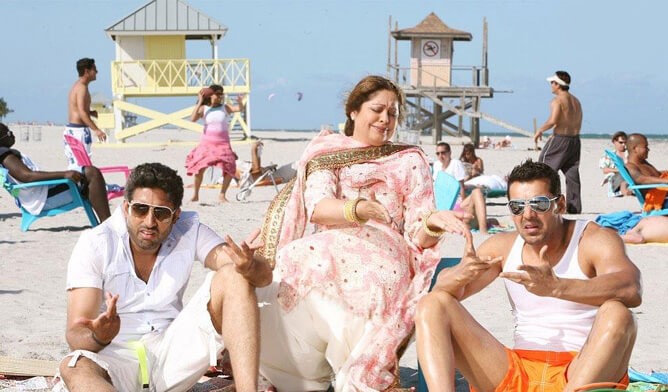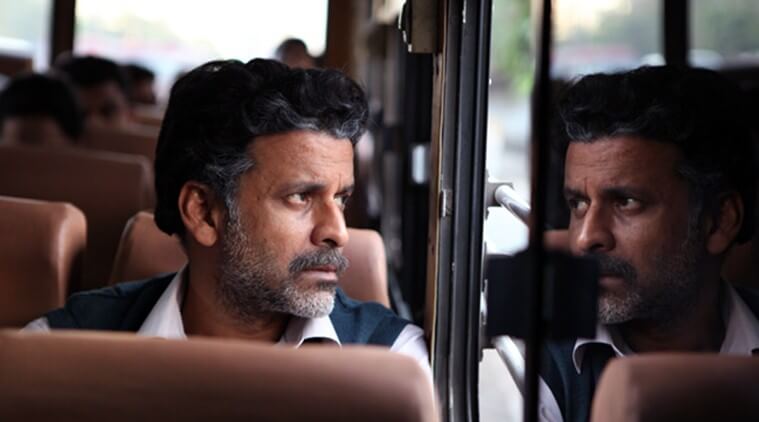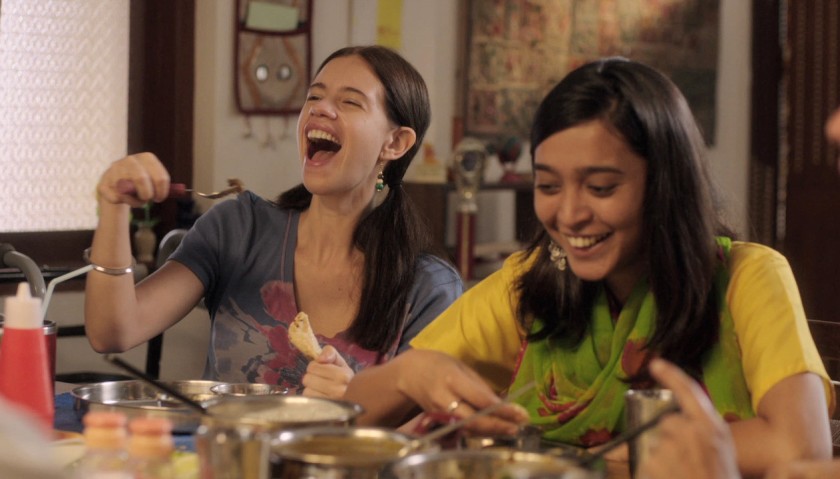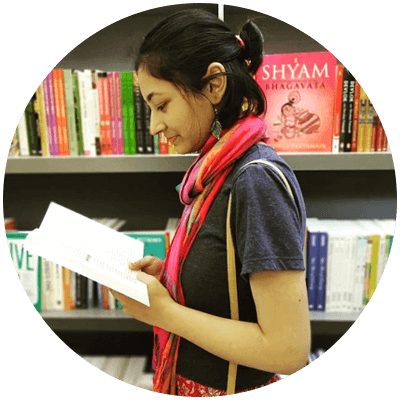It’s Time for Bollywood To Shed Its Homophobia
[/vc_column_text][/vc_column][/vc_row][vc_row full_width=”stretch_row_content_no_spaces” gap=”35″][vc_column width=”2/12″ css=”.vc_custom_1561015863493{padding-right: 20px !important;padding-left: 20px !important;}”][/vc_column][vc_column width=”6/12″][vc_column_text css=”.vc_custom_1568785946482{margin-bottom: 100px !important;}”]In September last year, after a long fought legal battle led by activists, the Supreme Court of India decriminalised homosexuality. In the landmark ruling, the Court unanimously declared that Section 377 was unconstitutional “in so far as it criminalises consensual sexual conduct between adults of the same sex.” Judge Indu Mishra, one of the judges on the five-member bench, further asserted that “History owes an apology to members of LGBT community and their families for ostracisation and persecution they faced because of society’s ignorance that homosexuality is a natural trait; its penal suppression infringes a host of fundamental rights.”The judgment was celebrated across the country, with members of the LGBTQ community and their supporters pouring out into streets, waving rainbow flags and holding up posters. On social media, the tag #LoveWins trended, with people from all spectrums hailing the right to love across genders. Prominent figures of Bollywood too, such as Deepika Padukone, Priyanka Chopra, Ranveer Singh, Aamir Khan, Karan Johar, Anil Kapoor and many others hailed the decision and tweeted their support for India’s LGBT community. However, the hypocrisy of Bollywood and its under-representation and misrepresentation of LGBTQ characters was soon pointed out.
For a long time, LGBTQ characters in Bollywood movies have been represented on the sidelines, shown either as cross-dressers or as mere caricatures defined by their clothes and bodily movements. Homophobic depictions have been common in mainstream films and songs, using LGBT themes and characters as tools for comic purposes.
Take for instance, Dostana (2008). Directed by Tarun Mansukhani, under the banner of Dharma Productions, the movie was considered by many as the first representation of the LGBTQ community in a mainstream movie. The comedy film depicted John Abraham and Abhishek Bacchan as two men pretending to be gay, in order to share a flat with a girl. They both, ofcourse, end up falling for her. It is the way they’re portrayed that stands out. In order to make others believe they’re gay, they wear flowery shirts, hold hands and adopt laughable body gestures. An extremely homophobic song in the movie “Munda Sadda Gay Gay” depicted a distraught mother’s concerns, showcased by Kirron Kher who tried all ways to “cure” her son, including voodoo, black magic and emotional blackmail. In many ways, a dramatic Kirron Kher resembled a shocked Kanta Ben from Kal Ho Na Ho (2003). Kanta Ben’s trembling hands, outraged face, and mumbling prayers were her response, everytime she saw Shah Rukh Khan and Saif Ali Khan together. In both these movies, although the leading actors were not actually gay, the mere thought of them being so was portrayed in a ridiculous manner. Student of the Year, a movie made as late as 2012, too carried forward the caricaturish and comic representations of gay characters. The principal of the school (played by Rishi Kapoor) is shown to be a comic and horny man, hitting on and making uncomfortable the happily married sports teacher (Ronit Roy). As if all gay men do during their day is hit on other men.
 Source : Dostana (2008)
Source : Dostana (2008)
This is not to say that there didn’t exist any movie in Bollywood which did justice to LGBT issues. There was Deepa Mehta’s Fire (1996) which boldly portrayed a lesbian romance between two women who went through failed marriages with men. Then there was the very mature My Brother Nikhil (2005) which looked at the life of a gay protagonist diagnosed with HIV. However, such movies were few and far in between, catering to a limited audience. Mainstream cinema, actors and producers in Bollywood continued to shy away from such themes.
 Source : Fire (1996)
Source : Fire (1996)
This is in stark contrast to Hollywood, which has produced some beautiful and heart wrenching movies centred on LGBT characters in recent past (such as Call Me By Your Name, Imitation Game and Blue is the Warmest Colour). However, there seems to be some light at the end of the tunnel. In recent years, Bollywood has witnessed the coming up of both independent films and those backed by big productions and stars, that have introduced LGBT characters and themes. Three movies which stand out are Hansal Mehta’s Aligarh, Shakun Batra’s Kapoor & Sons, and Shelly Chopra Dhar’s Ek Ladki Ko Dekha Toh Aisa Laga. The three films, all belonging to different genres and made in very different styles, they opened curtains to subtle and realistic portrayals of LGBT characters in mainstream Bollywood cinema. They also brought a welcome shift, as they contained some of the leading actors of contemporary times, including Manoj Bajpayee, Fawad Khan and Sonam Kapoor who played LGBT characters with ease. While Fawad and Sonam portrayed the struggles of coming out to one’s family, Bajpayee put the spotlight on the way society stifles an individual’s privacy and makes them pay the price for love.
 Source : Aligarh (2015)
Source : Aligarh (2015)
Apart from the winds of change in mainstream cinema, several independent production houses and directors are also embracing content which focus on LGBT-centred stories and characters. For instance, HumaraMovie, an independent production and filmmaking house co-founded by Vinay Mishra works with young filmmakers and is producing Kaizad Gustad’s gay-themed feature film Lala & Poppy. Similarly, the movie Loev (2015), produced by Sudhanshu Saria (also the director of the movie) and Bombay Berlin Film Productions, made waves on the international film festival circuit. With Shiv Pandit and late Dhruv Ganesh as its leads, the movie threw the spotlight on the nuances of a homosexual relationship and also dealt with the issue of homosexual rape. Margarita With A Straw (2014), directed by Shonali Bose and starring Kalki Koechlin, deserves a special mention. It focused on the complex intersectionalities of sexuality and disabilities, woven around the life and desires of bisexual woman with cerebral palsy.
 Source : Margarita with a Straw (2014)
Source : Margarita with a Straw (2014)
Thus, both mainstream and independent movies are slowly but steadily adopting a more nuanced approach to the stories and lives of the LGBT community. With the Supreme Court having done its job, it’s now up to the artists, filmmakers and producers to move away from homophobia and tell the narratives like they should be told: devoid of pretense, judgment and ridicule.
About The Author
 Shruti is a journalist and poet based in Bangalore. She loves to dig into movies and find the intersection between politics and art.[/vc_column_text][/vc_column][vc_column width=”1/12″][/vc_column][vc_column width=”3/12″ css=”.vc_custom_1587561568846{border-left-width: 5px !important;padding-right: 10px !important;padding-left: 10px !important;background-color: #f3f3f3 !important;border-left-color: #1e73be !important;}”][vc_column_text css=”.vc_custom_1587561173160{margin-right: 20px !important;margin-left: 20px !important;border-right-width: 20px !important;border-left-width: 20px !important;}”]
Shruti is a journalist and poet based in Bangalore. She loves to dig into movies and find the intersection between politics and art.[/vc_column_text][/vc_column][vc_column width=”1/12″][/vc_column][vc_column width=”3/12″ css=”.vc_custom_1587561568846{border-left-width: 5px !important;padding-right: 10px !important;padding-left: 10px !important;background-color: #f3f3f3 !important;border-left-color: #1e73be !important;}”][vc_column_text css=”.vc_custom_1587561173160{margin-right: 20px !important;margin-left: 20px !important;border-right-width: 20px !important;border-left-width: 20px !important;}”]
Continue Reading
[/vc_column_text][vc_basic_grid post_type=”post” max_items=”6″ element_width=”12″ gap=”35″ item=”10912″ grid_id=”vc_gid:1587561516253-8d542f23-f98c-9″ el_class=”grp”][/vc_column][/vc_row][vc_row full_width=”stretch_row_content_no_spaces” gap=”10″ equal_height=”yes” content_placement=”top” css=”.vc_custom_1559458142539{background-color: #1b0341 !important;}”][vc_column width=”1/4″][vc_column_text]50 HOUR FILMMAKING CHALLENGE
Know More
Rules
FAQs
Jury
Awards
Previous Winners[/vc_column_text][/vc_column][vc_column width=”1/4″][vc_column_text]
CHALLENGES
Short Scriptwriting Challenge
Storytelling Challenge
Poster Design Challenge[/vc_column_text][/vc_column][vc_column width=”1/4″][vc_column_text]
FESTIVAL
Schedule
On The Stage
Venue and Travel
BUY PASSES[/vc_column_text][/vc_column][vc_column width=”1/4″][vc_column_text]About IFP
Previous Editions
Branded Content
Labs
Campus Connect
HELPLINE – 9727299070
EMAIL – [email protected][/vc_column_text][/vc_column][/vc_row]
